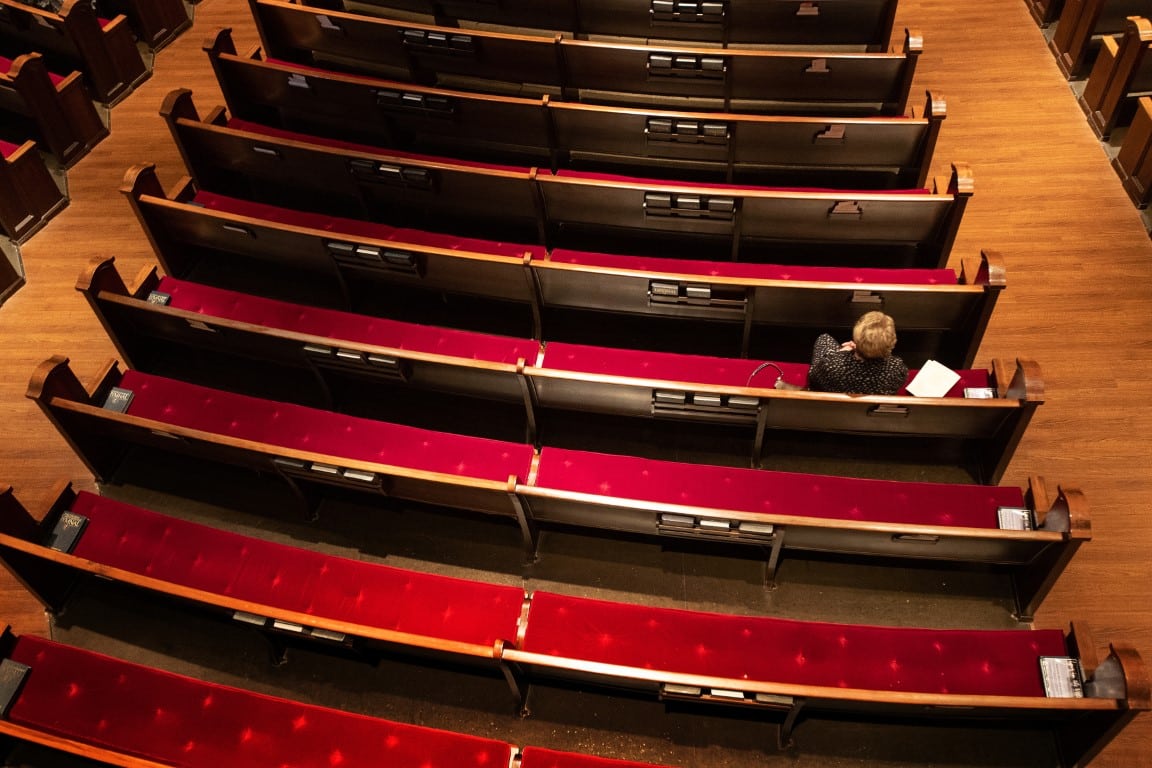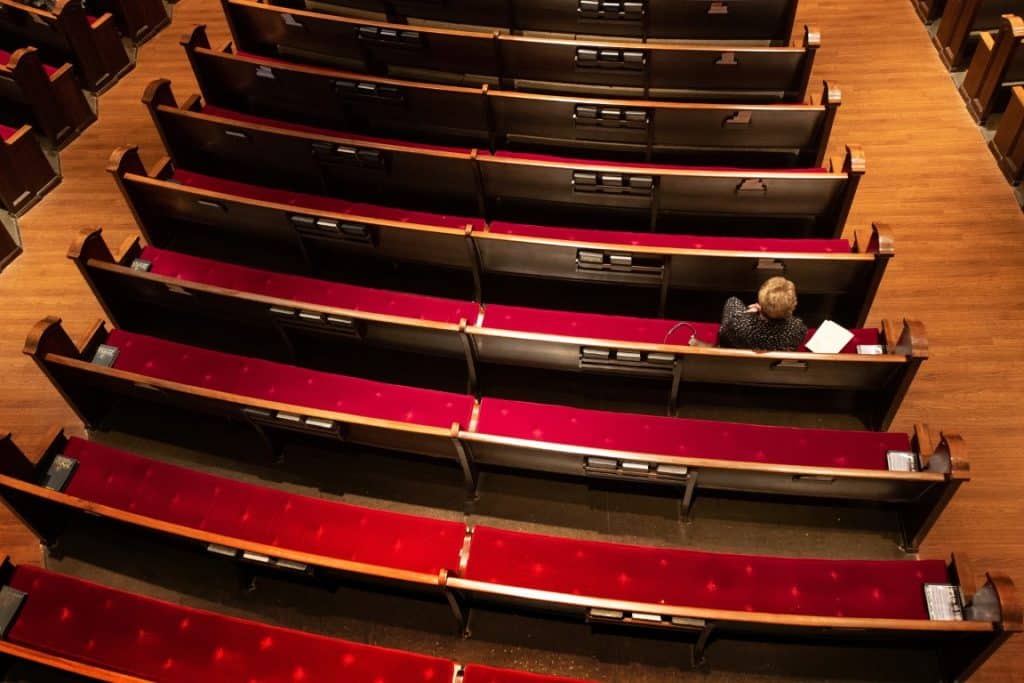

Susan Logan worships in an empty pew section at Belmont United Methodist Church in Nashville, Tenn., Sunday, March 15, 2020, after church leadership encouraged people to worship from home via video livestream in response to the coronavirus. Photo by Mike DuBose/UM News
(RNS) — Like many pastors and church leaders around the world, I’ve been grieving the damage caused by COVID-19. People have died, people have suffered physically, jobs have been lost, the economy has been disrupted and church has been halted in many places.
Yet, God is at work. We are mindful of the promise in Paul’s Letter to the Romans: “We know that all things work together for good for those who love God, who are called according to his purpose.”

Bishop Scott Jones. Courtesy photo
Which is why I have discouraged United Methodists from holding in-person worship services during the month of May and why I am not afraid to advocate for continued online church for the foreseeable future. The Lord is moving in ways many of us have not experienced in our lifetime, and this movement will not stop because we are worshipping from home. In fact, I think it may increase its momentum.
I have drawn inspiration on how to respond to this crisis from Nehemiah. When he learned about the deplorable state of Jerusalem, this exiled prophet living in the Persian capital did not get to work right away. He stopped, sat down and wept. He cried and he mourned for the loss, and he did so openly.
This is a critical reminder for church leaders that compassion should always precede action. Yes, there is a lot to do during COVID-19 to make sure everyone is physically and spiritually well. But we can’t neglect people’s experiences of pain. There have been family deaths. People are isolated and lonely. Others are worried about money or are food insecure. These individuals need to know that not only do their leaders see their hurt but feel it.
Grieving is not only purposeful for showing compassion to our congregations; it also helps us to reorient our hearts to depend on God rather than ourselves. Therefore, mourning what we have lost amid COVID-19 is a critical step before reopening the doors of our churches.
After he mourned, Nehemiah prayed and fasted for days. He went to King Artaxerxes, the conquerer of Israel, to ask for permission to go to Jerusalem and rebuild its protective wall. When the king asked, “What do you want?” Nehemiah stopped and prayed spontaneously, even while talking to the king. The king granted Nehemiah’s request.
No matter the obstacle that stands in our way, prayer is essential. If we want to be part of what God is blessing, we must be willing to pray and be guided by him.
Finally, in addition to grieving and praying, Christian leaders must take courage in the face of COVID-19 just as Nehemiah did amid opposing forces. When Nehemiah and his workers were building the wall, they worked with a tool in one hand and a sword in the other. They were not blind to the potential dangers, and they equipped themselves to fight. But they also did not let fear stand in the way of what God was leading them to do.
Similarly, as leaders, we must remember our callings and stand firm on faith. Jesus admonished us to be as wise as serpents and as innocent as doves. Like Nehemiah, we can carry out our duties with courage and prudence, caring for the Church without putting it unnecessarily at risk.
The church and its leaders must model compassion, prayer and courage to a world in desperate need of hope. These present challenges are tough, and we have all experienced difficulties in varying degrees. We must prepare to live with this pandemic for months to come.
At the same time, many congregations are discovering new ways of worshipping God, serving their communities and being the church. We are never without hope, and the ability and necessity to minister is ever-present. God is at work through his Church during this pandemic. We serve a miracle-working God who made way for Nehemiah and is doing so today.






